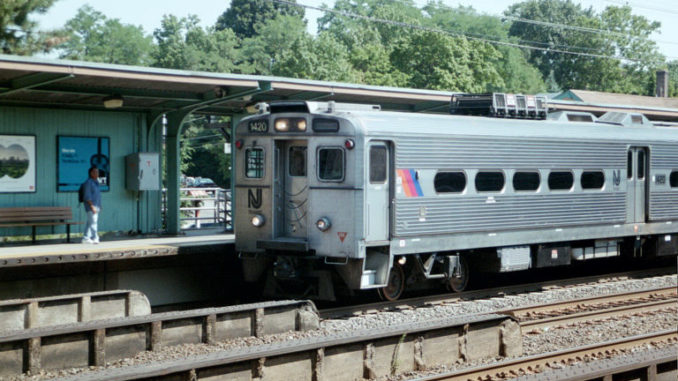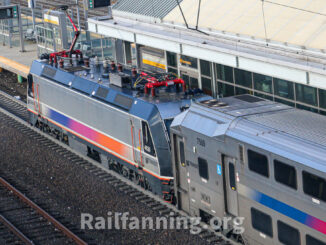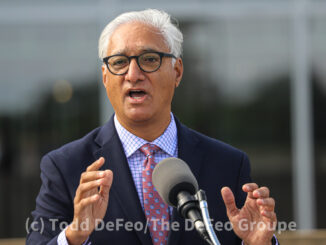
The late 1970s were a difficult time for freight railroads. It was in the years leading up to the Staggers Rail Act of 1980, and many railroads were struggling, and many were not in a state of good repair.

The issue over railroad safety and repair was brought to the forefront after a June 22, 1977, Conrail derailment in Metuchen, N.J. In that wreck, 17 cars derailed and took the busy Northeast Corridor out of commission.
“This accident is yet another example of what I consider to be the seriousness of the current deterioration of rail safety,” U.S. Rep. Fred Rooney, D-Penn., said during a July 1977 subcommittee hearing.
An investigation revealed the train apparently derailed after an axle of a freight car overheated. This situation is known as a hotbox.
“The Metuchen accident, which was referred to by the chairman, involved 17 freight cars of the ConRail line and was derailed on tracks maintained by Amtrak,” U.S. Rep. James Florio, D-N.J., said. “Fortunately, there were no injuries, but 30,000 commuters and long-distance rail travelers were disrupted. Tracks were uprooted, and there were thousands of dollars in damage to rolling stock.
“That is the story on the surface. We have also ascertained there were hazardous substances being transported in the cars,” Florio added. “There were no clear marks on the cars for the train’s manifest that could be identified by the vast majority of people involved. State or local officials had no way of knowing what the danger was potentially, should a leak or explosion develop. It is clear that there is a legislative or perhaps administrative void that must be dealt with.”
The Metuchen derailment was just one of many on the Northeast Corridor. Between April 1, 1976, and June 30, 1977, there were three passenger train derailments and 24 freight train derailments in addition to a pair of freight train collisions, according to statistics released at the time as a part of the hearing.
A dozen of the 29 incidents were blamed on track defects, the leading cause. With eight, human error was the second-most cause of the incidents.
“The present significance of Metuchen is that it is all too typical of the ever increasing number of railroad accidents occurring each year in the many States,” Michael Johnson, assistant chief and congressional liaison for the National Association of Regulatory Utility Commissioners and Pennsylvania Public Utility Commission, noted at the July 1977 hearing.
Johnson noted the Federal Railroad Administration (FRA) reported 10,450 railroad wrecks in 1976 in which 980 people were injured and 108 killed. That represented a 30 percent increase in the number of wrecks compared to 1975.
“While there was a drop from 1975 figures in the number of people injured, the 1976 fatality statistics represent a 32 percent increase over the previous year,” Johnson noted. “That is one-third more people killed as a result of railroad accidents from 1975 to 1976.”
Cars filled with chlorine gas were among those on the freight train consist in the Metuchen derailment. Following the crash, there was apparently some confusion among emergency responders, and lawmakers stressed the need for local officials to be aware of what types of materials passing freight trains were hauling.
“We need to address the question of notification to local officials of what it is that is carried through trains in their areas so the proper precautions can be made for evacuation in event of accidents,” Florio said. “We need, also, to address the question of contingency plans so we know ahead of time what action must be taken to safeguard the public in event of derailments involving hazardous substances.”
That is a discussion that continues today.





